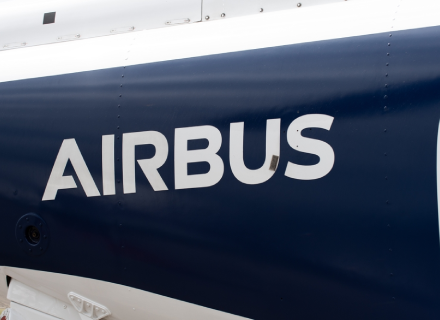As its rival Boeing continues to feel the heat of its workers’ strike, Airbus touched a new landmark as it delivered its first A321XLR jet to Spain’s Iberia. The aircraft, which took five years to develop and targets a market previously served by Boeing’s out-of-production 757 or larger wide-bodies, was handed over to the Spanish carrier on October 29, according to Flightradar24 data.
Launched in 2019 to steal a march on Boeing’s plans at the time to build a new jet in the middle of the market, the A321XLR now targets a gap left by the out-of-production Boeing 757, where the A321 family outsells the largest versions of the 737 MAX.
What makes A321XLR unique is its novel type of fuel tank, moulded into the contours of the fuselage to eke out more space for fuel and deepen its transatlantic range. The design, however, raised concerns among regulators about the risk of fire and evacuation times in the event of an accident, prompting design changes before the certification.
The analysts also say the resulting extra weight chipped away at its maximum range, though Airbus countered it by saying the roughly 200-seat model would still allow airlines to open up multiple new routes. Iberia plans to introduce the A321XLR on flights from Madrid to Boston after a handful of trials in Europe. Airbus already has an order book of 500 A321XLR jets, which will be delivered in the coming years.
Boeing reacted to the news, by stating that XLR addresses only a small niche in the overall market for single-aisle jets, the busiest part of the industry, which the American aviation giant pegs at 33,380 aircraft over 20 years.
Critics have also questioned the impact of the A321XLR’s range on running costs, suggesting the aircraft and engine will be pushed to their limits and require more frequent maintenance. However, Airbus’ landmark delivery now puts pressure upon Boeing to win certification for its own largest single-aisle, the 737 MAX 10, following delays due to an issue with an anti-ice system. Boeing has said the timing of certification is a matter for regulators.
Iberia has said that the arrival of the A321XLR would help it comply with its environmental commitments, part of an industry-wide effort to eliminate net carbon emissions by 2050. The A321XLR jet delivered to Iberia is powered by LEAP engines from CFM International, owned by GE Aerospace and Safran.
Continuing its positive momentum, Airbus further secured a 60-jet order from Saudi Arabia’s newest airline Riyadh Air, as the latter seeks more narrowbody A321-family jets when it starts its operations in 2025.
The deal, signed at the Future Investment Initiative forum in Riyadh, brings to 132 the total number of jets ordered by the Saudi start-up, which in 2023 ordered 39 Boeing 787 Dreamliners with options for 33 more. The airline is now planning to start talks with Airbus and Boeing for an order of A350-1000 or 777X wide-body jets within two months.
Riyadh Air would receive its first A321 in the second half of 2026 with the last jet to be delivered in 2030, CEO Tony Douglas said, adding that the airline would later decide how many A321 and larger A321 LR and A321 XLRs would be included in the order.
Riyadh Air, owned by Saudi Arabia’s sovereign wealth fund PIF, has secured the deliveries within an unusually short lead time given the industry’s congested production lines and strong demand that has seen Airbus sold out for most models through the end of the decade.
Industry sources, while speaking to Reuters, also stated that the timing suggested Riyadh Air had been able to secure early slots as many carriers across the world struggle to make good on pending orders because of weak balance sheets.
The Riyadh Air’s Airbus deal follows months of speculation after a report that the new carrier had chosen to buy at least 100 Boeing 737 MAX aircraft to meet its narrowbody needs alongside the larger Boeing 787s.

